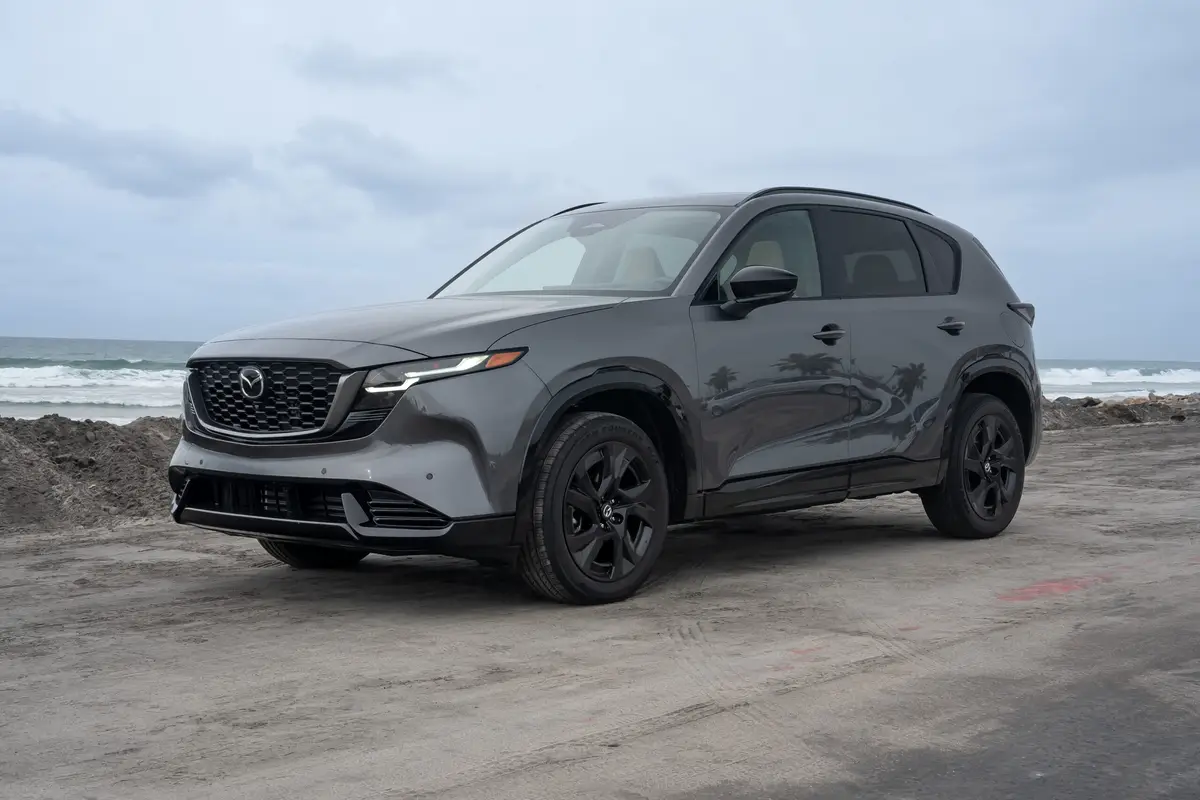AZCentral.com's view
With its beefy good looks, accommodating interior and solid driveability, the Ford Explorer Sport Trac is my favorite so far in the booming new niche market of — wait a minute, what do they call these things?
I’ve had enough trouble with the awkward “sport utility vehicle” to describe every closed truck from a Suzuki Samurai to a Ford Excursion. Now this. I’m tempted to call Sport Trac a four-door, compact, short-bed, sport utility truck. Which is a mouthful at best.
Ford passes the buck by simply calling Sport Trac a sport utility vehicle.
Whatever it is, the Sport Trac is bigger than the Nissan Crew Cab and smaller than a full-size truck, such as Ford’s new F-150 four-door pickup.
Derived from the highly popular Explorer, Sport Trac is a medium-size truck that is practical for people who need the space of a sedan but only occasionally need a pickup bed.
Sport Trac is the sharpest looking of this new class, less stubby and awkward, with a cab that is nicely integrated into the curve of the bed. The front-end treatment is pure macho, as are the broad flares over each wheel well. The view from the rear is less successful, the tailgate looking tall and ungainly.
Because the Sport Trac came from the Explorer and not a pickup truck, it has the sophisticated ride and handling that help make Explorer the top-selling SUV in the nation, and maybe the universe.
Let’s not get into the ramifications of Firestone blowouts and rollovers and other such nasty business, which you can read about on the front page most days.
The test truck was shod with Firestone Wilderness AT tires, though the 16-inchers were not part of the recalled group.
I checked the air pressure before we set out on a trip that combined highway speeds and some nasty low-range boulder hopping in the Bradshaw Mountains. The top-end test truck was nicely set up for this kind of activity, with push-button engagement of four-wheel drive on the fly, including low-range 4WD.
All that worked just fine, as did the tires, which maintained their tread through thick and thin.
But the cushy suspension and long wheelbase, which provide a fine ride on the street, conspired to make this rugged-looking truck seem decidedly weak-kneed on the rocky trail. Sport Trac comes only with the 204-horsepower, 4-liter V-6, which is good, with either stick shift or automatic transmission.
Power is enough to motivate this 2-ton Tessie, though a V-8 option should be available, too. For towing, if nothing else.
Inside, front-seat passengers have a ton of space, enthroned in supportive bucket seats. There are lots of cubbies, cupholders, white-faced gauges and other features, including a rugged-looking canvas pack that fits right into the console.
Instead of carpeting, Sport Trac’s floors are covered with a heavy vinyl material, another nod toward outdoors-style durability. Skiers should love that. Heavy floor mats are placed over the vinyl.
Back-seat denizens will find plenty of headroom and legroom, though our passengers complained that the bench seat was not very comfortable, and that the back was too upright.
One appreciated feature was the electric roll-down rear window, which kind of made up for the rear-door windows that don’t roll down very far.
The short bed can be expanded, using the clever flip-over aluminum cage that extends the bed over the open tailgate. That bed, by the way, is made entirely of composite, an industry first. The basic Sport Trac starts out expensive, though it does offer a high level of standard features.
2001 Ford Explorer Sport Trac
Vehicle type: Five-passenger, four-door sport utility vehicle, rear/four-wheel drive.
Base price: $25,270.
Price as tested: $28,205.
Engine: 4-liter V-6, 205 hp at 5,250 rpm, 240 lb.-ft. of torque at 3,750 rpm .
Transmission: Four-speed automatic.
Curb weight: 4,400 lbs.
Wheelbase: 125.9 inches.
EPA mileage: 15 city, 19 highway.
Highs:
Excellent versatility.
Roomy interior.
Handsome styling.
Lows:
Uncomfortable rear seat.
Mild off-road ability.
Latest news



